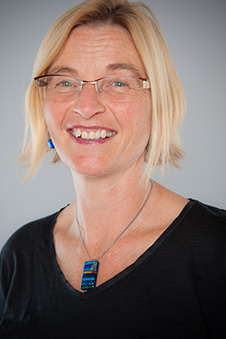With COVID-19 vaccines now on the horizon, a travel doctor and convenor of the travel medicine programme at the University of Otago, Wellington, is urging general practice staff to undertake further study to upgrade their travel medicine skills.

Dr Jenny Visser.
Dr Visser says the demand for travel medicine advice – even to developed countries – is likely to be significant, and could offer an additional income stream to general practices.
“COVID-19 will impact on all travellers, not only those travelling to low and middle income destinations, who have traditionally been the ones seeking pre-travel health advice.
“Given the role that pre-existing medical conditions have in increasing the risk of developing severe COVID-19 disease, it is important those with risk factors seek advice.
Dr Visser says as part of a pre-travel consultation, practitioners will need to advise on the new risks posed by COVID-19 and make an individualised risk assessment.
With many countries requiring visitors to be tested before travel and to hold proof of vaccination, general practices will need to know how to facilitate this.
Dr Visser says travellers may require proof of vaccination against COVID-19 on an International Certificate of Vaccination or Prophylaxis (ICVP) under International Health Regulations (IHRs), as is required for yellow fever.
Staff or centres applying to become IHR-authorised vaccinators or vaccination centres in New Zealand need to have postgraduate qualifications in travel medicine – and this could become a requirement for those issuing COVID-19 certificates, she says.
Dr Visser leads the University of Otago's postgraduate Travel Medicine Programme and is updating the courses for next year to include COVID risk assessment, education on risk reduction, the role of pre-travel screening and certification, the role of vaccination and ICVPs, and accessing up-to-date resources, including specific country requirements.
The University offers the only postgraduate qualifications in travel medicine in New Zealand. Students can choose to do a Postgraduate Certificate in Travel Medicine, which includes two papers and can be completed in one year of study, or a Postgraduate Diploma in Travel Medicine, which comprises four papers. Both are distance taught and can be completed in flexible time frames, and while students continue to work.
For more information visit the Travel Medicine webpage
Dr Visser will be giving an online presentation on upcoming changes in Travel Medicine on Wednesday 9 December at 7pm.
All welcome to join by Zoom.
Zoom details
- Zoom link
- Password if requested: TRVMED
For further details, please contact:
Dr Jenny Visser
Travel Medicine Programme Lead
Department of Primary Health Care and General Practice
University of Otago, Wellington
Email jenny.visser@otago.ac.nz
Cheryl Norrie
Communications Adviser
University of Otago, Wellington
Mob +64 21 249 6787
Email cheryl.norrie@otago.ac.nz
Find an Otago Expert
Use our Media Expertise Database to find an Otago researcher for media comment.